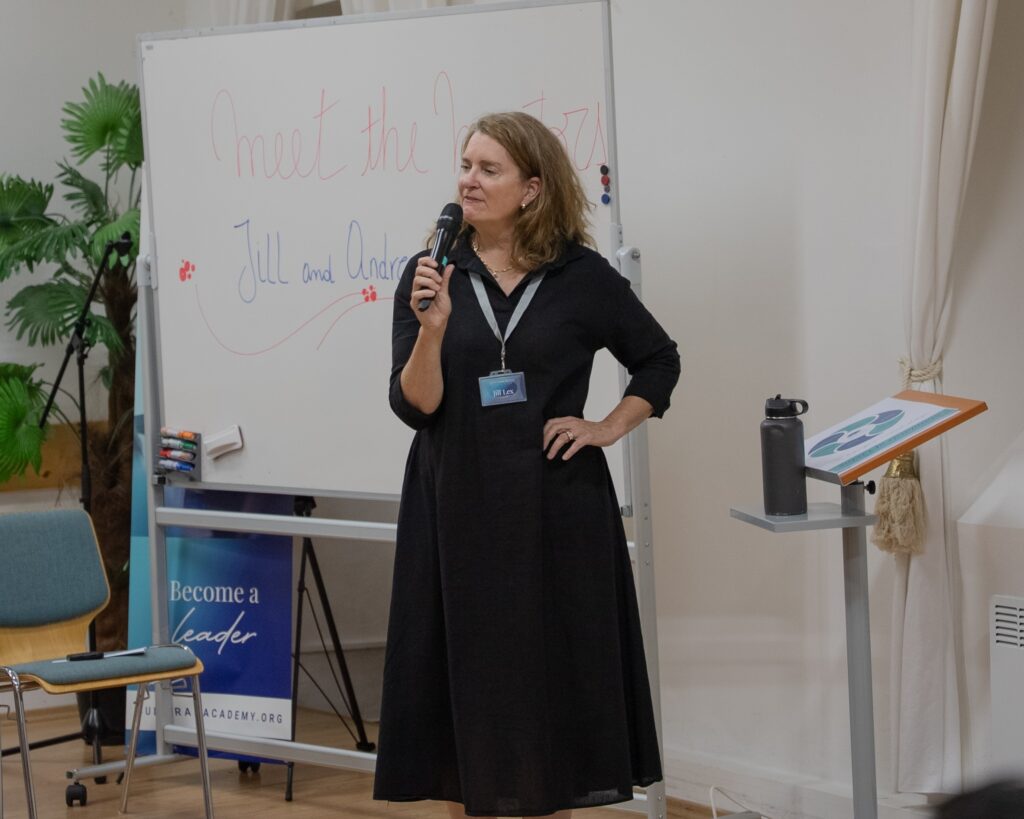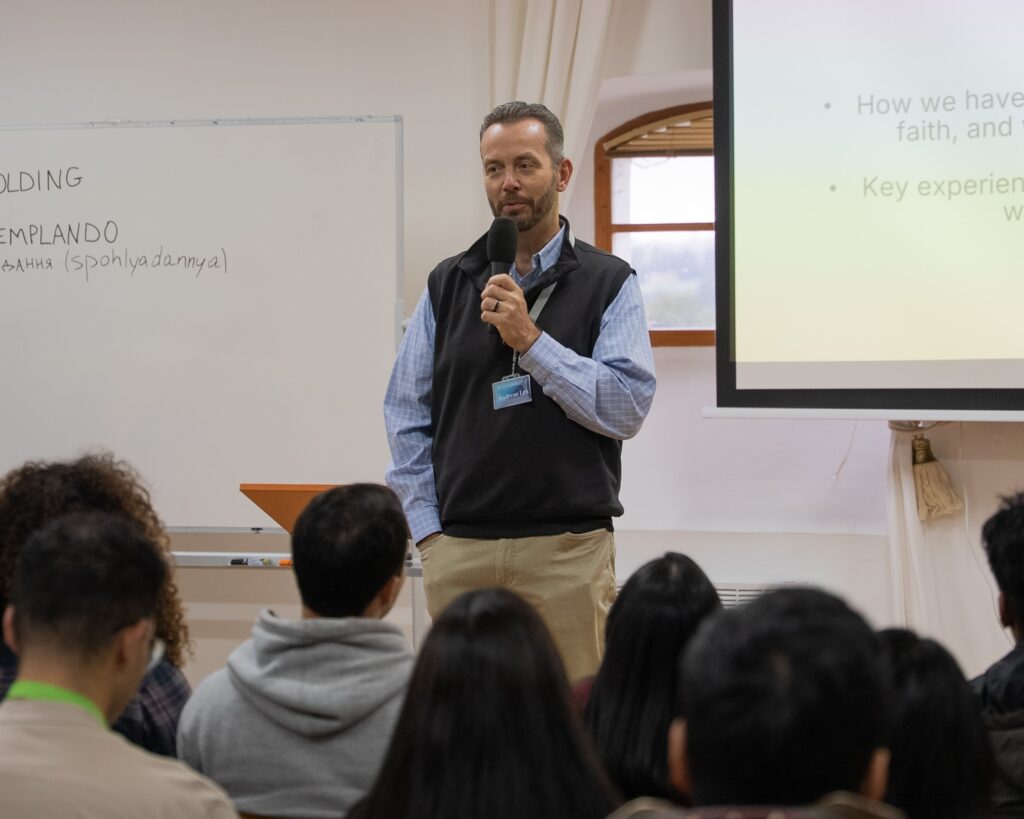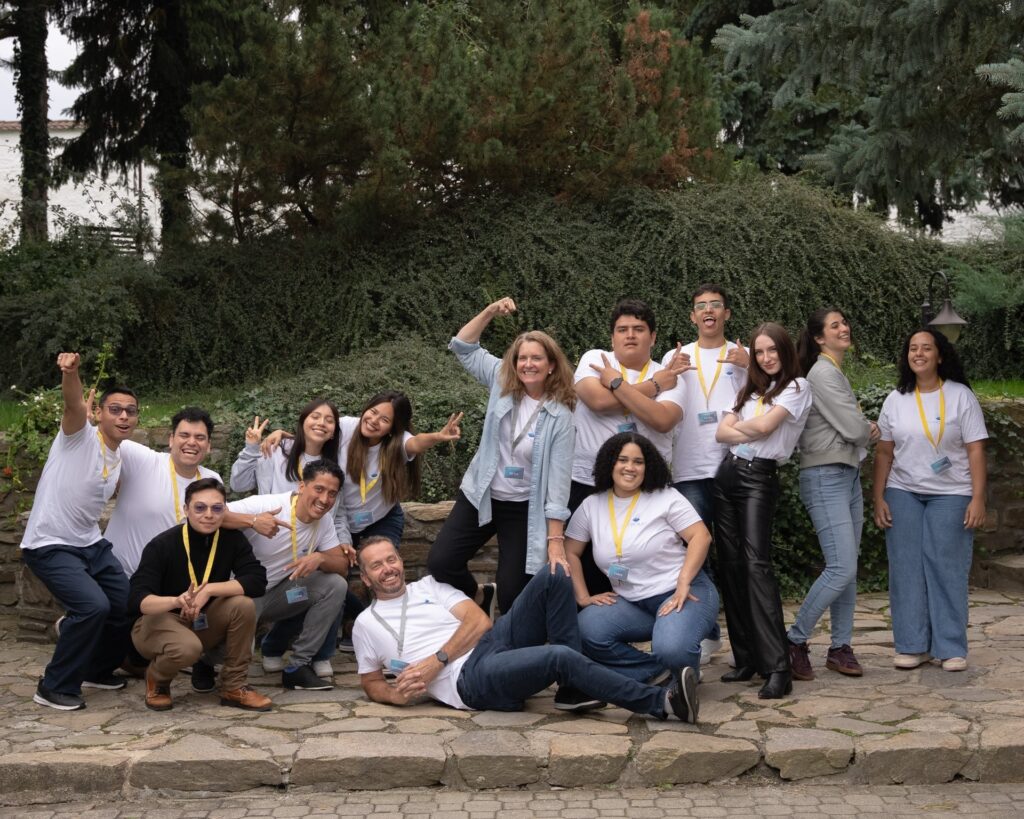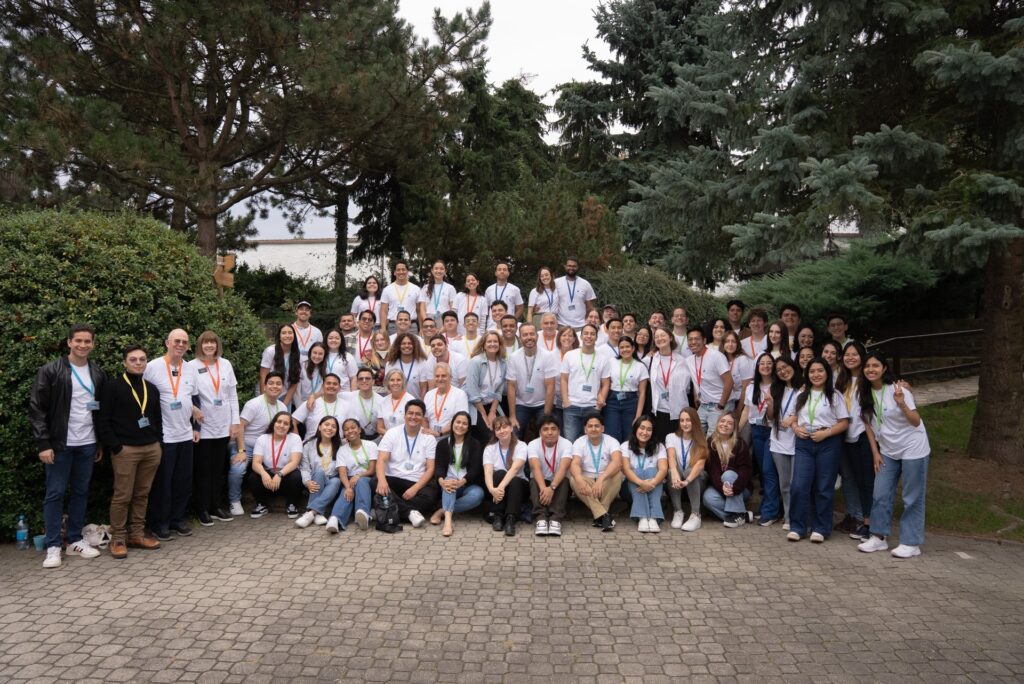Honesty and integrity in leadership are qualities that shape how people connect, collaborate, and influence others. This week at Cumorah Academy, mentors Jill and Andreas Lex shared not only their experiences but also their personal stories—showing how values and networking go hand in hand in building trust, careers, and meaningful lives. Their message was clear: when leaders choose honesty and integrity, they create stronger networks, healthier organizations, and lasting impact.
Jill and Andreas Lex: A Story of Leadership Across Borders
Jill was born and raised in Idaho, where her love for music led her to pursue a degree in Piano Performance and Pedagogy, later completing a Master of Arts in Music Education and Psychology. Andreas grew up in Graz, Austria, and studied accounting at Brigham Young University (BYU). His career path took him into healthcare, where he worked for Baxter Healthcare and dedicated his professional life to the health sector.
While Andreas focused on a career in healthcare, Jill used her talents to teach their children and remained active in alumni associations and community service. Both careers, though different in scope, reflect the same foundation of service, dedication, and integrity.
Today, as mentors at Cumorah Academy, they are passionate about helping young adults make decisions that will shape their futures. Jill often reminds students:
“The decisions you make in your 20s will impact you until your 50s—your health, your relationships, your family, and your career.”
Andreas adds,
“I’m a big fan of what they are doing here at Cumorah. The culture of Cumorah accelerates the growth process.”
Their stories highlight how different talents and paths—whether in healthcare, education, or community work—can be united by a common vision: leading with honesty and integrity.

Why Honesty and Integrity in Leadership Matter
In the classroom, Jill and Andreas Lex guided discussions on how honesty and integrity in leadership affect careers, organizations, and personal growth. Students learned that when trust is high, productivity increases. When trust is broken, people achieve less.
This principle applies in every aspect of life, from the workplace to family life. Leadership isn’t only about achieving efficiency—it’s about creating a culture where people feel safe, valued, and motivated. When leaders prioritize honesty and integrity, their influence extends beyond results; it changes people’s lives.
Mariana, a student from Brazil, shared her experience:
“My favorite moment was when everyone raised their hands to share experiences about trust. I learned so much from listening to others. I feel really good when people believe in me and feel safe around me, so I will make an effort to be a trustworthy person. To do that, I know I should always act with honesty and integrity.”
Her reflection captures the essence of what Jill and Andreas were teaching: integrity builds the kind of trust that strengthens both leadership and networks.
Networking Through Honesty and Integrity in Leadership
Networking is often seen as a strategy—meeting people, exchanging contacts, and finding opportunities. But Jill and Andreas reminded students that true networking is about building relationships based on trust. And the only way to build genuine trust is by practicing honesty and integrity in leadership.
When leaders are honest, people know they can rely on them. When they act with integrity, people feel safe to open up, share ideas, and collaborate. That’s how professional and personal networks expand—not by collecting names, but by creating meaningful connections.
As Andreas’s career in healthcare showed, success depends not only on knowledge and skill but also on relationships built over years of consistent integrity. Likewise, Jill’s service through teaching, alumni associations, and community work created networks of influence rooted in trust and authenticity.
Rocio, a student from Argentina, described how this lesson came alive in class:
“I learned more deeply about honesty, integrity, and trust. The mentors gave a special touch by sharing their personal experiences. My favorite part was analyzing real-life situations and applying the principles we learned. For example, when we talked about trust, we connected it not only to the workplace but also to our family and friendships. These classes inspired me to set goals to improve in that area of my life.”
Her takeaway shows how honesty and integrity in leadership naturally extend into the networks we build—at work, at home, and in society.

Trust: The Foundation of Leadership and Networking
A recurring theme in Jill and Andreas Lex’s class was that trust is the foundation of leadership. Without trust, networks collapse. With trust, leaders create environments where collaboration thrives and innovation grows.
Andreas shared that in his healthcare career, integrity wasn’t optional—it was essential. In healthcare, trust determines whether patients, colleagues, and partners feel safe. Similarly, in leadership and networking, trust determines whether people will follow, support, and open doors for one another.
David Terrazas from Mexico reflected on this after the session:
“I find it very meaningful that these people give their time and attention to others they don’t know, sharing their life experiences and their pivotal moments. I liked the class. They try to involve their whole family even though they are not here.”
His words remind us that leadership is about generosity—sharing time, attention, and values with others. That generosity is what strengthens networks and leaves a legacy.

The Cost and Reward of Integrity
Living with integrity isn’t always easy. Sometimes being honest comes with short-term challenges or even setbacks. But Jill and Andreas reminded students that the cost of integrity is always worth it. In the long run, it builds credibility, peace of mind, and stronger relationships.
As one of the mentors put it,
“There’s no growing in the comfort zone, and there’s no comfort in the growing zone.”
This principle applies directly to leadership and networking. Growth requires risk—risking honesty when it’s easier to hide, risking transparency when it might bring criticism, and risking integrity when shortcuts seem more profitable. But those risks create the kind of leader people want to follow and connect with.
Applying Honesty and Integrity in Leadership Today
The message Jill and Andreas Lex left with students is simple: honesty and integrity in leadership are not abstract concepts. They are choices we make every day—in conversations, decisions, and relationships. They shape the networks we build, the trust we earn, and the legacy we leave.
At Cumorah Academy, students are reminded that leadership is not just about achieving personal success—it’s about influencing others for good. And that influence comes only when people believe you and feel safe around you.

Ready to Grow as a Leader with Integrity?
Jill and Andreas Lex’s mentorship shows that honesty and integrity in leadership are essential not just for careers but for building meaningful networks and living with purpose. Their lives—rooted in healthcare, music, teaching, service, and family—demonstrate that leadership is about consistency, authenticity, and trust.
At Cumorah Academy, students don’t just study leadership; they live it. Through mentorship, community, and practice, they discover how values like honesty and integrity can accelerate growth and expand their networks.
If you’re ready to strengthen your leadership, grow your network, and make decisions today that will impact your future, join us at Cumorah Academy.
Written by Fernando L. Ferreira Jr.
Supervision by Kamila Uberto Fullmer




